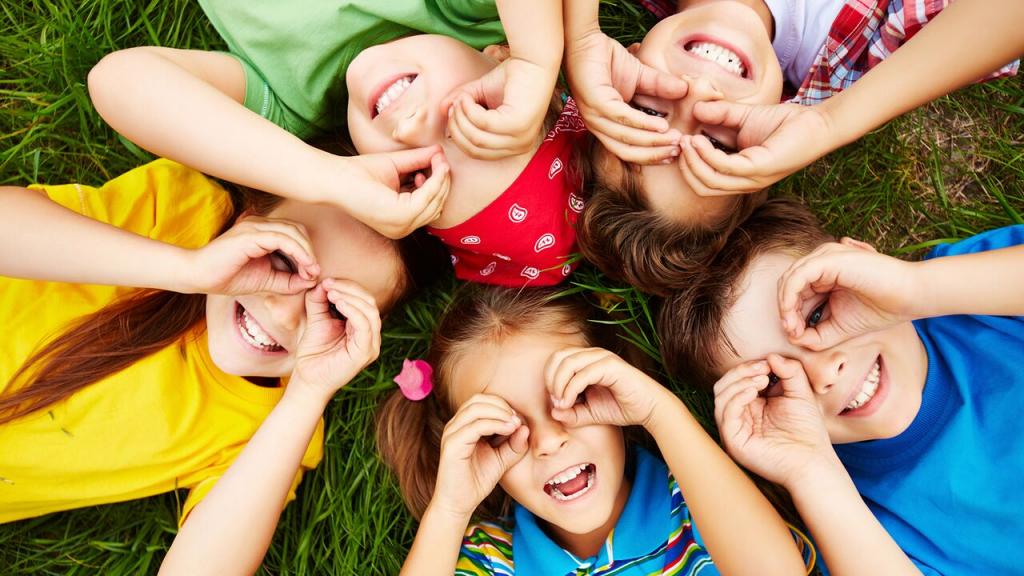
How Children Make Friends as They Grow
Making friends is an important part of children's social and emotional development, and it is a skill that they will continue to develop as they grow.
Here are some ways in which children make friends at different stages of development:
Infants and toddlers: At this age, children are just beginning to interact with others and may make friends through shared activities, such as playing with toys together.
Preschoolers: As children enter preschool, they may begin to make more deliberate attempts to connect with others and may initiate play with specific children. They may also begin to show an interest in joining group activities and making friends within a larger group.
School-aged children: As children enter elementary school, they may begin to focus more on developing close relationships with a few specific friends. They may also start to understand the concept of shared interests and may seek out friends who have similar hobbies or activities.
Adolescents: Adolescents may place a greater emphasis on finding friends who share their values and beliefs and may seek out groups or clubs that align with their interests. They may also be more selective in choosing their friends and may place greater importance on having close, loyal friendships.
Overall, the process of making friends becomes more complex as children grow and develop. It is important for parents and caregivers to support their children as they navigate the process of making and maintaining friendships.
Tracking Social-Emotional Milestones in Children
It is important for parents and caregivers to track social-emotional milestones in children in order to ensure that they are developing appropriately and to address any potential concerns or delays. Some social-emotional milestones to watch for include:
Expressing a range of emotions: By the age of two, children should be able to express a range of emotions, including happiness, sadness, anger, and fear.
Demonstrating empathy: Children should begin to show empathy, or the ability to understand and share the feelings of others, by around two years of age.
Developing self-control: As children grow, they should begin to exhibit self-control, such as being able to wait their turn and follow the rules.
Seeking attention and approval: Children naturally seek attention and approval from their caregivers, and this is an important part of their social-emotional development.
Making friends and playing with others: Around the age of three, children should begin to initiate play with others and show an interest in making friends.
It is important to remember that every child is unique and may develop at their own pace. However, if you have concerns about your child's social-emotional development, it is always a good idea to consult with a healthcare professional.
How Socialization Evolves as Children Grow
Socialization is the process of learning how to interact with others and become a member of society. It is an important aspect of child development and evolves as children grow and mature. Here are some ways in which socialization evolves as children grow:
Infants and toddlers: At this age, children learn about socialization through their interactions with caregivers and other adults in their lives. They learn about appropriate behaviour and how to express their needs and emotions.
Preschoolers: As children enter preschool, they begin to interact with a larger group of peers and may begin to learn about sharing, taking turns, and resolving conflicts. They also learn about social roles and may start to mimic the behaviour of adults and older children.
School-aged children: As children enter elementary school, they are exposed to a wider range of social experiences and may have more opportunities to interact with children from different backgrounds. They may also start to develop a sense of identity and may begin to question and challenge social norms and expectations.
Adolescents: Adolescents may place a greater emphasis on forming and maintaining relationships with their peers and may seek out social groups that align with their interests and values. They may also start to assert their independence and may challenge adult authority more frequently.
Overall, socialization is a continuous process that evolves as children grow and develop. It is important for parents and caregivers to support and guide children as they navigate the social world around them.
Tips for Helping Children Make Friends
Making friends is an important part of children's social and emotional development, and it is a skill that they will continue to develop as they grow. Here are some tips for helping children make friends:
Encourage socialization: Provide opportunities for children to interact with others, such as through playdates, sports teams, or clubs.
Model good social skills: Children learn by watching and mimicking the behaviour of adults, so be sure to model good social skills yourself.
Teach conflict resolution: Help children learn how to resolve conflicts and handle disagreements in a healthy and appropriate way.
Encourage sharing and taking turns: These skills are important for building friendships and can be practiced in a variety of settings.
Help children find common interests: Encourage children to find activities and hobbies that they enjoy and can share with others.
Support and encourage children: Be a supportive and encouraging presence in your child's life and let them know that it is okay to make mistakes and try new things.
By following these tips, you can help your child develop the social skills needed to make and maintain friendships as they grow.